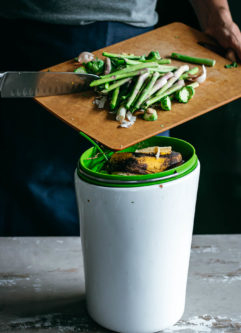Can you compost cooked vegetables?
Wondering if you can compost cooked vegetables? This guide provides everything you need to know about composting cooked vegetables, from when it’s safe to when to skip tossing them in your compost bin.
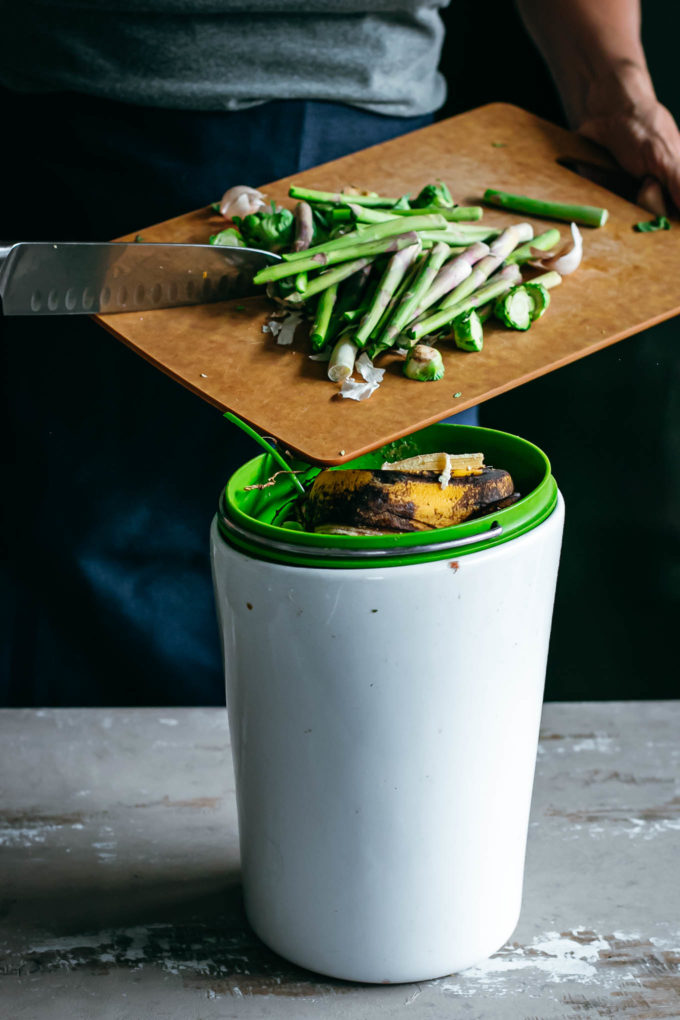
Want to Save This Recipe?
Enter your email & I’ll send it to your inbox. Plus, get new plant-based recipes in your inbox!
By submitting this form, you consent to receive emails from Fork in the Road.
Are you a veggie lover who also prioritizes sustainability in the kitchen? We are too! But before your cooked veggies make it to the compost bin, it’s important to know if they contain ingredients that could harm the composting process.
You can compost cooked vegetables. They rot quickly and are nitrogen-rich, which is good news for your compost pile. However, veggies that are cooked with other ingredients like large amounts of oils, sugars, sauces, lots of salt, and animal products should not be composted.
To know if you can compost your cooked veggies, you must be familiar with the composting process, the best cooked veggies for composting, and which ones to avoid adding to your compost bin.
Ready to learn which cooked veggies can be composted? Let’s do it!
♻️ How vegetables break down in compost
The process for composting cooked vegetables is slightly different from composting other materials. There are a few things to keep in mind before you add them to your compost:
- Cooked vegetable decompose quickly. When cooked, vegetables break down and start to rot quickly, which is unsanitary and can lead to unpleasant odors. A small amount of rotting food is okay for compost, but too much can compromise the compost pile by attracting pests.
- Cooked vegetables are generally high in nitrogen and moisture. Too much of either could prevent the compost from heating properly, and may also cause unwanted odors. The key is to balance out the compost pile by adding high-carbon, low moisture materials, like paper, straw, and sawdust.
- Compost piles should be kept away from water sources. Never add cooked vegetables to a compost pile if it’s in an area where runoff is a problem.
- Skip vegetables with animal foods or oils. To avoid complications while composting vegetables, you should skip composting them if they’re combined with meat or dairy. Additionally, veggies that are covered in fats, oils, sauces, or excess salt should not be composted.
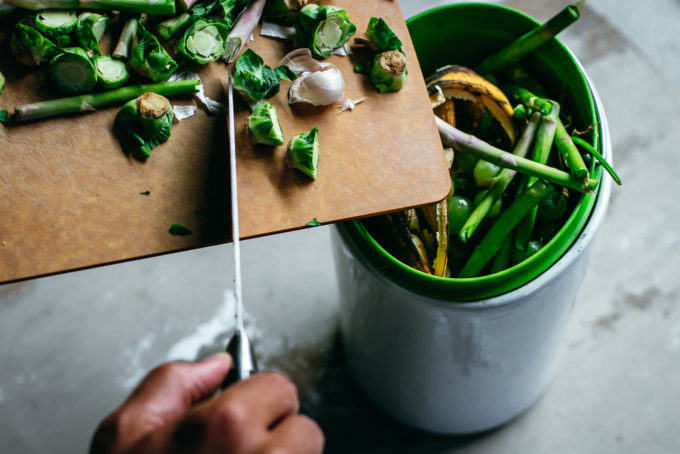
🥕 How to compost cooked vegetables
Composting cooked vegetables is quite easy, as long as the veggies are plain without added ingredients. A large, enclosed container should be used for compost, which will help deter pests.
You can compost cooked vegetables in just a few simple steps:
- Strain cooked vegetables thoroughly. This will help lower the moisture content, which is better for the composting process.
- Chop veggies into small pieces. The veggies will breakdown more quickly in compost this way. You can chop them before or after cooking, depending on what you prefer.
- Mix veggies with other compost materials. Over a day or two after adding cooked veggies to compost, mix them with the other compost materials. This will help speed along the composting process.
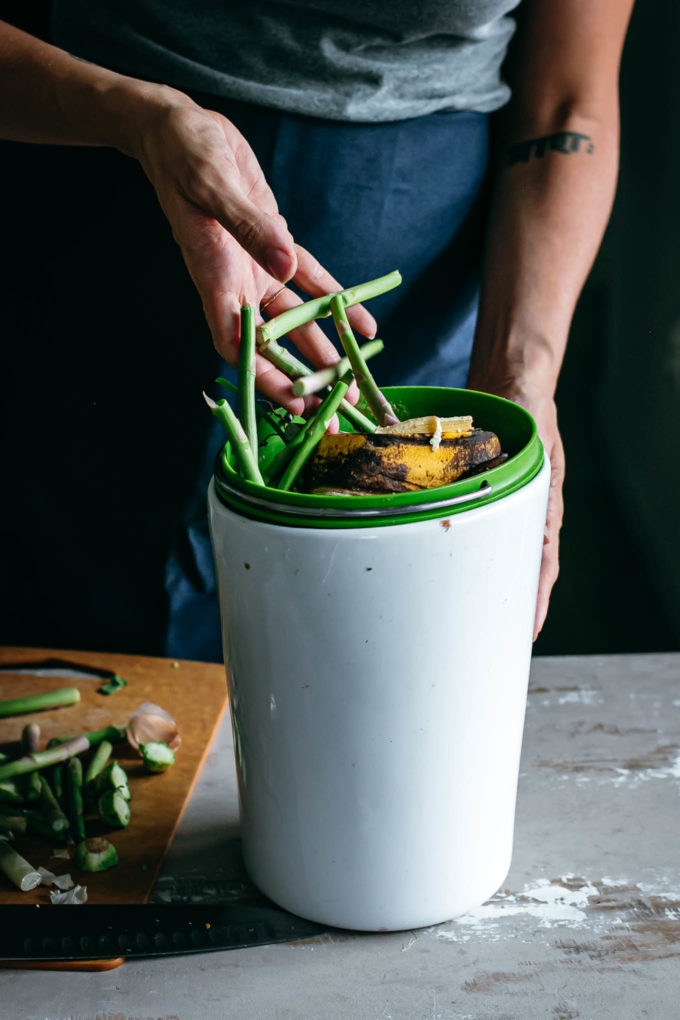
🌽 Vegetables that can be composted
Any type of vegetable can be composted, whether it is cooked or raw. Cooking vegetables does not impact their composting potential. It’s what you add to cooked vegetables that can harm your compost pile. Plain, steamed vegetables are the best for composting.
Here is a list of some popular vegetables that can be composted:
- Potatoes: Baked, cooked, steamed, roasted, or boiled potatoes work great for composting.
- Onions: Chopped, pressed, diced, or juiced onions break down more easily in compost. Small amounts of onions are best for compost due to their acidity level.
- Leafy greens: Try adding spinach, kale, arugula, or collard greens to your compost bin.
- Squashes: You can compost any type of squash, including summer and winter varieties.
- Cruciferous veggies: Cauliflower, broccoli, brussels sprouts, cabbage, and kohlrabi are great options for composting.
As long as cooked vegetables are free of pest-attracting ingredients – like oil, sugar, and salt – you should have no problem composting them.
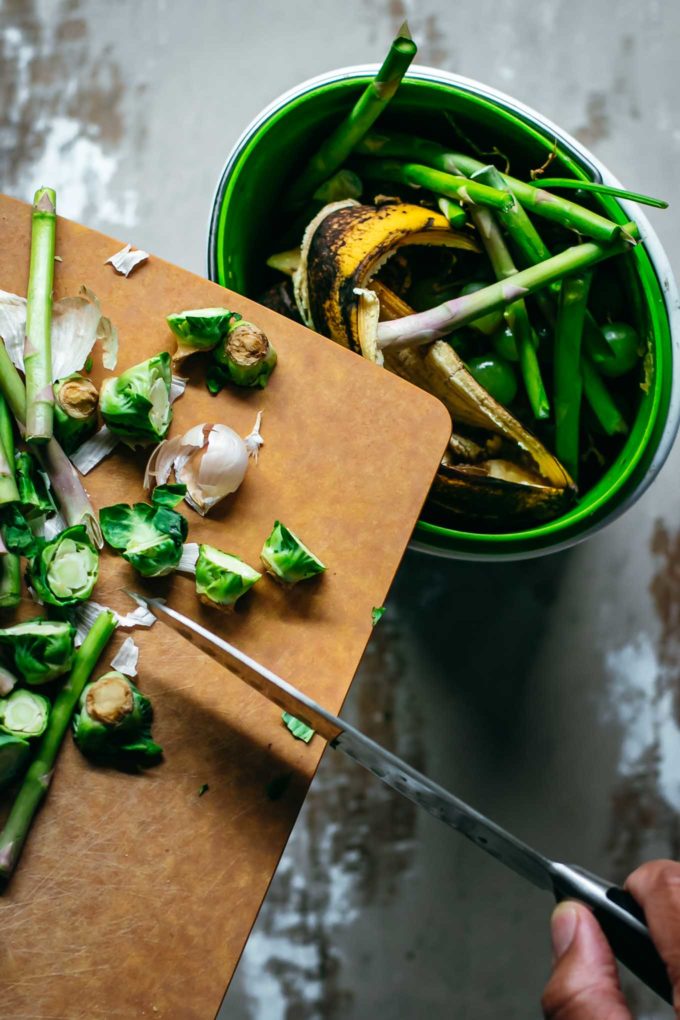
❌ Which cooked vegetables should not be composted?
Luckily, most cooked vegetables can be composted when they are in their pure form. Vegetables should not be composted if they:
- Are combined with meat or dairy
- Have been mixed with sauce
- Include oils or fats
- Contain lots of added salt or sugar
- Avoid composting large amounts of acidic vegetables at one time, like onions or tomatoes
If you buy frozen or pre-packaged vegetables, make sure to double-check ingredient labels before composting them. Some of these may have added ingredients, like oils and sauces, that should not be placed in your compost heap.
The bottom line is that all cooked vegetables can be composted, unless they have ingredients added to them that attract pests or prevent them from breaking down properly.
👉 Do cooked or raw vegetables compost faster?
Cooked vegetables can be better for composting in some instances. The cooking process triggers vegetables to start breaking down, so they rot faster than raw vegetables. Additionally, bacteria are drawn to cooked vegetables in the compost pile due to the heat they give off, which speeds up the composting process.
While cooked vegetables tend to compost faster than uncooked, there are a few things you should do to make sure they compost better:
- Strain the moisture from vegetables before tossing in the compost bin.
- Make sure there are other types of materials, like straw and paper, in the compost heap to balance out the nitrogen and carbon ratios.
- Avoid throwing too many cooked veggies in the compost pile at once.
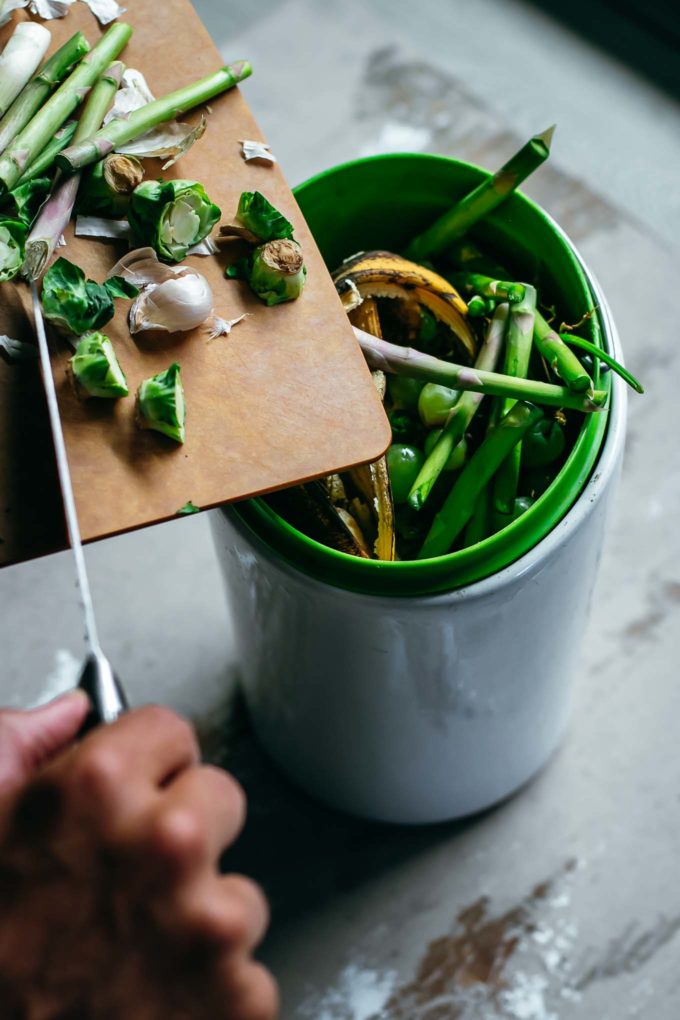
🧄 Ways to use leftover vegetables
Although your cooked vegetables are better off in the compost pile than a landfill, it is a good idea to try to use them first to reduce food waste. Below are some things you can do with any cooked vegetable before tossing them in compost.
- Use leftover cooked veggies in another meal. You can add leftover vegetables to just about any dish like soup, salad, or bowls (try our Carrot Greens Soup, Crunchy Celery Apple Salad, or Chipotle Lime Black Bean Bowl).
- Freeze veggies for later. Most cooked vegetables can be placed in the freezer and keep for several months. It’s easy to take them out at any time to mix into sauces, soups, or heated up as a side dish.
- Make less food. If you’re finding that you have leftover cooked veggies more often than not, you may want to consider changing the amount that you cook. This will help prevent having leftovers in the first place.
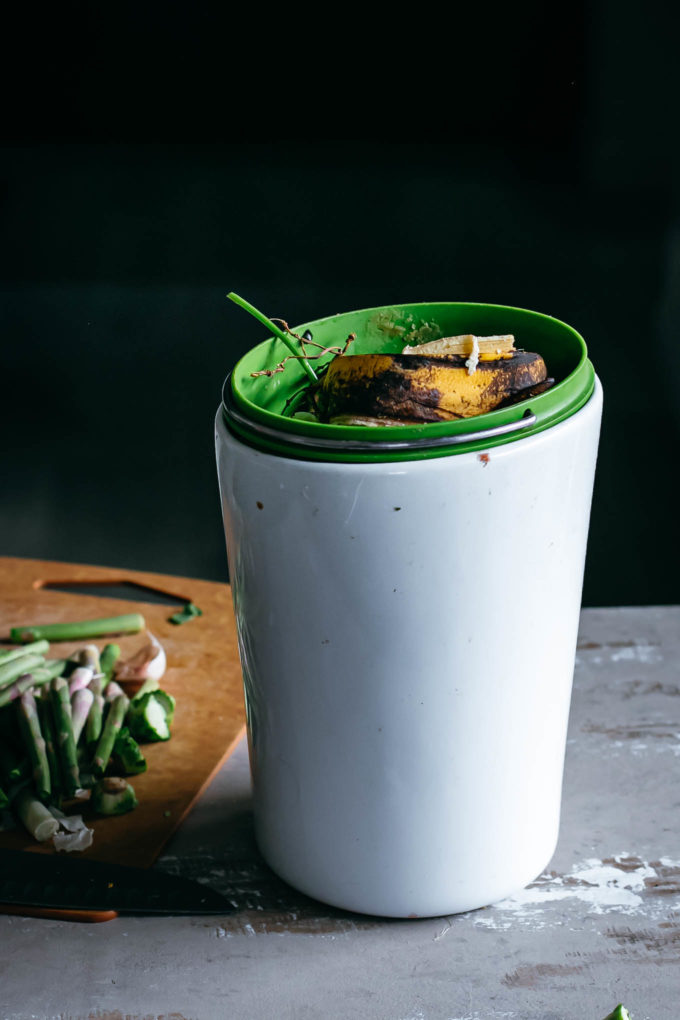
♼ More zero waste kitchen + composting tips
Ready to take your green lifestyle to the next level? We’ve got you covered! Check out these sustainable kitchen guides:
- Zero Waste Kitchen Start Guide
- How to Clean Glass Jar Labels (Eco-Friendly Method)
- How to Remove Wine Bottles Labels Naturally
- The Ultimate Guide to Composting Paper Towels
- Can You Throw Tea Bags in the Compost Bin?
- How to Compost Paper Bags
- How to Compost a Whole Pumpkin
Want more inspiration for going green in the kitchen? Join the Green Living Community for plant-based recipes, sustainable kitchen hacks, and get our FREE guide to meal planning to reduce food waste!

